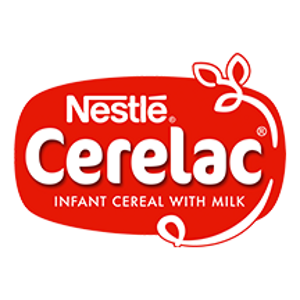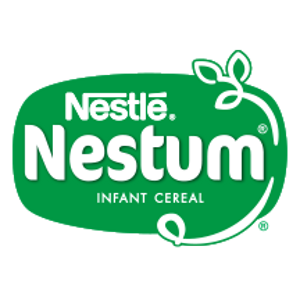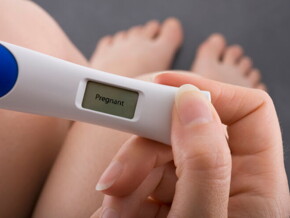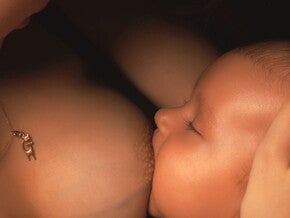
Nutrition for fertility: nutrients that you must include in your diet
Learn more about good nutrition for fertility if you want to have a baby with your partner. Click here to read more about it.
Understanding the vital role of nutrition for fertility is the cornerstone of this insightful expedition. Whether at the inception of family planning or seeking ways to boost your reproductive health, our comprehensive guide will illuminate the significance of key nutrients in the quest for conception.
From the powerhouse benefits of folic acid to the fertility-boosting properties of antioxidants, we unravel the science behind these essential nutrients.
In Baby&Me we invite you to join us on this informative odyssey as we navigate the world of fertility-boosting nutrients, providing practical tips and valuable insights to empower you on your path to parenthood.
Whether you're embarking on the fertility journey for the first time or seeking to enhance your reproductive wellness, we are here to guide you through the nurturing embrace of nutrient-rich choices in the comfort of your home.
Importance of nutrients for fertility
Embarking on the journey to parenthood is a remarkable and nuanced process, often influenced by a multitude of factors, with nutrition playing a pivotal role.
Understanding the importance of specific nutrients is key to optimizing fertility. Let's explore how these vital elements contribute to the reproductive wellness of both women and men.
Fertility in women
A woman's reproductive health is a complex interplay of hormonal balance, ovulatory function, and overall well-being. Nutrients play a pivotal role in supporting these intricate processes.
Adequate nutrition can influence menstrual regularity, egg development, and the overall health of the reproductive organs. The right blend of nutrients for fertility contributes not only to the quantity but also the quality of eggs, laying a robust foundation for a healthy pregnancy.
Fertility in men
For men, fertility is intimately connected to sperm production and health. Nutrients act as the building blocks for optimal development and function. From the quality of genetic material to the energy needed, a well-nourished body provides the necessary support for male fertility.
Ensuring the intake of key nutrients can enhance sperm count, morphology, and motility, increasing the likelihood of successful fertilization.

8 Nutrients that improve male and female fertility
Embarking on the fertility journey involves embracing a holistic approach to nourishment.
1. Antioxidants
Antioxidants, found in abundance in fruits, vegetables, and nuts, help combat oxidative stress. For women, antioxidants support egg quality, while for men, they protect sperm from damage.
Vitamin C, E, and beta-carotene are potent antioxidants that can be incorporated into your diet to boost fertility.
2. Folic acid and vitamin B12
Folic acid is vital for women, especially during the preconception period, as it aids in preventing neural tube defects in the developing fetus. While vitamin B12 complements folic acid in supporting fertility and fetal development.
Leafy greens, fortified cereals, and lean meats are excellent sources of these nutrients.
3. Iron
Iron is crucial for women, as it helps prevent anemia, which can affect fertility. Adequate iron levels support overall reproductive health and ensure optimal oxygen supply to reproductive organs.
Incorporate lean meats, beans, and fortified cereals into your diet to boost iron intake.
4. Zinc
Zinc is a key player in both male and female fertility. For women, it aids in egg development, and for men, it supports sperm production and motility.
Foods like nuts, seeds, whole grains, and lean meats are rich sources of zinc.
5. Vitamin D
Vitamin D is associated with improved fertility in both men and women. It plays a role in hormonal balance, supports egg and sperm quality, and enhances the chances of successful conception.
Fatty fish, and fortified dairy products are excellent sources of vitamin D. Don’t forget to have some sunlight to improve vitamin D production and absorption.
6. Omega 3
Omega-3 fatty acids, particularly DHA and EPA, contribute to hormonal balance and support overall reproductive health.
These essential fats are found in fatty fish, flaxseeds, chia seeds, and walnuts; making them valuable additions to a fertility-friendly diet.
7. Selenium
Selenium is crucial for sperm health in men. It helps protect sperm from oxidative damage and promotes optimal sperm function.
Incorporate selenium-rich foods like Brazil nuts, seafood, and whole grains into your diet.
8. Amino acids
Amino acids, the building blocks of proteins, are essential for overall reproductive health. L-arginine is known to enhance blood flow to the reproductive organs, benefiting both male and female fertility.
Poultry, dairy, nuts, and seeds are good sources of amino acids.

Bad habits affecting fertility
In the intricate tapestry of fertility, lifestyle choices and habits play a significant role. Certain behaviors, often ingrained in our daily lives, can have a profound impact on reproductive health.
- Smoking is a well-established fertility disruptor for both men and women. In women, it can lead to diminished ovarian reserve and increase the risk of miscarriage. In men, smoking has been linked to decreased sperm quality, including reduced motility and sperm count.
- While moderate alcohol consumption is generally considered acceptable, excessive drinking can adversely affect fertility. In women, it can disrupt menstrual cycles and lead to hormonal imbalances, while in men, it may reduce testosterone levels and impair sperm production.
- Chronic stress and overworking can disrupt hormonal balance and negatively impact reproductive health. Both men and women may experience irregular menstrual cycles, diminished sperm quality, and a reduced likelihood of successful conception.
- Obesity is associated with hormonal imbalances that can affect fertility in both genders. In women, it may lead to irregular menstrual cycles and ovulatory dysfunction, while in men, it can contribute to decreased sperm quality.
- While excessive exercise can disrupt menstrual cycles in women, a sedentary lifestyle can also negatively affect fertility. Regular, moderate physical activity is crucial for maintaining a healthy weight and promoting overall well-being.
- Lack of adequate sleep and irregular sleep patterns can disrupt hormonal balance in both men and women. Quality sleep is essential for maintaining reproductive health and optimizing fertility.
Understanding the impact of these bad habits on fertility is a crucial step towards creating a fertility-friendly lifestyle. Making positive changes in these areas not only enhances the chances of conception but also contributes to overall well-being on the journey to parenthood.

Gain a better understanding of your child's development with the help of our stages
































